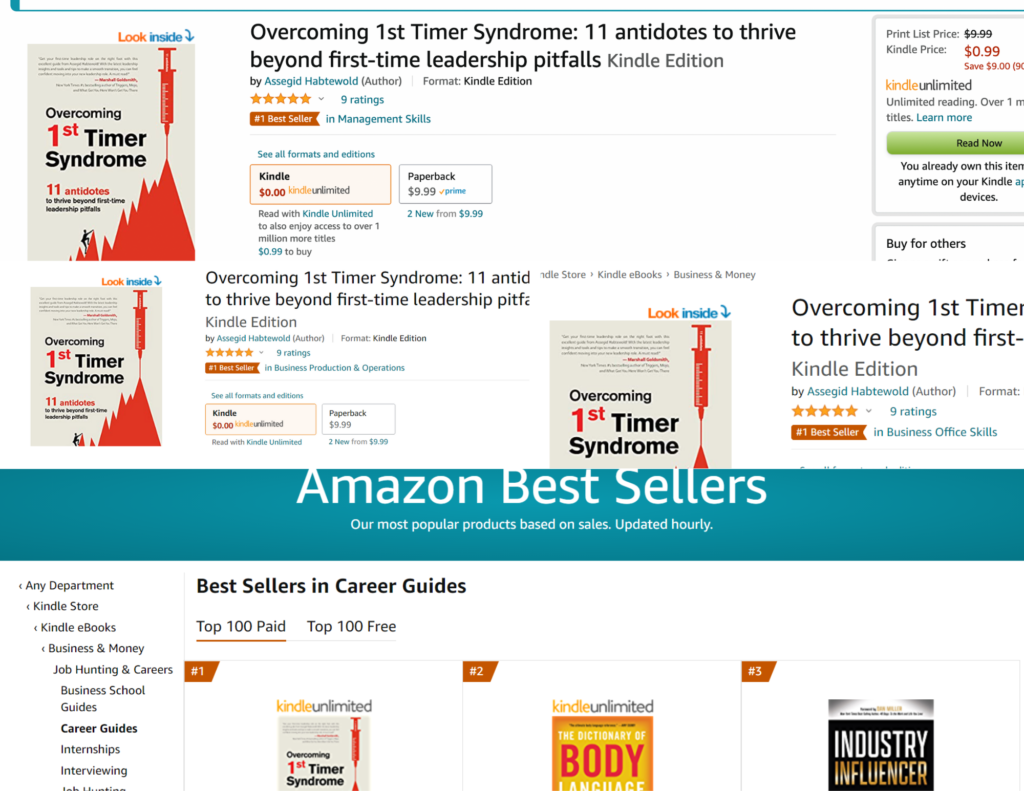03 Sep Excerpt- Providing Performance Feedback
“…Providing feedback is very important, but many leaders don’t do it at all or do it badly. In both cases, they shouldn’t be blamed. Providing feedback is hard, especially negative feedback. However, as a first-timer leader, if you haven’t yet, you should begin to provide feedback to your people and your superiors. Of course, providing feedback to your bosses is beyond the scope of this book, but take note and make it one of your future growth goals, which we will cover in the last chapter. One of the qualities upper management looks for from junior leaders like yourself is your ability to offer constructive feedback to your peers and supervisors.
For now, let’s focus on how you should give proper performance feedback to your team members. I’m sure you have given feedback before. How do you feel about your past ability to provide feedback? Do you think you did it properly? Did your feedback improve performance? If not, what was lacking? To help you assess your past feedback approaches and make adjustments, let me give you some tips.
Overall, in the workplace, we can divide feedbacks into three types:
1. Instant feedback. You give this feedback on the spot, whether privately or publicly. Such instant feedback can’t wait or doesn’t make sense if you do it later. For instance, if you can’t hear someone over the phone or in a virtual environment, ask them to speak up. But don’t give instant feedback that can wait. Performance feedback can wait at least until the next break.
2. Performance-driven feedback. You should make providing performance feedback a culture. People need to know where they stand in terms of their performance. You can use feedback once in a while to let your people know what is working that they should keep on doing and what areas need improvement.
3. Growth-centered feedback. You may decide to grow some of your team members to succeed you or someone else. You need to give them opportunities, such as delegation, to learn the ropes, and then give them periodic feedback to help them grow and become better.
Here, our focus is giving performance-driven feedback. The Center for Creative Leadership has a nice model called Situation-Behavior-Impact. Most feedback- giving models share these three steps. First, you state the situation you’re concerned about…” Overcoming 1st Timer book, Antidote 8 (Strive for Excellence), 8.3. Giving Performance Feedback, p. 162 – 63.
To learn more about the book such as Preface, Introduction, Outline, Endorsements, and so on: https://www.successpws.com/overcoming-1st-timer-syndrome-synopsis
To purchase the book: https://www.amazon.com/Overcoming-1st-Timer-Syndrome-first-time-ebook/dp/B09C8X4GCM/ref=zg_bs_8493798011_1?_encoding=UTF8&psc=1&refRID=3S9E59C19E4A29X7EDKX
To request follow up services for your first-timers such as 1-on-1 or group coaching, keynote, webinar based on the book or one of the themes covered in the book, and also a customized Emerging Leaders Leadership Development cohort program, reach out via [email protected]
Click here and watch the Author’s Release Video Message
By the way, I will be speaking on the same theme, Feedback, at this month’s Chapter meeting of PMI Silver Spring Chapter on September 8th at 7 pm. To learn more about the keynote and register, check this link out: https://pmissc.org/programs/upcoming-events/meetings/september-monthly-chapter-meeting
#overcoming1sttimersyndrome #fisrttimesupervisors #firsttimeprojectmanagers #NewTeamLeaders #newmanagers #emergingleaders #newbusinessowners #newsupervisors

